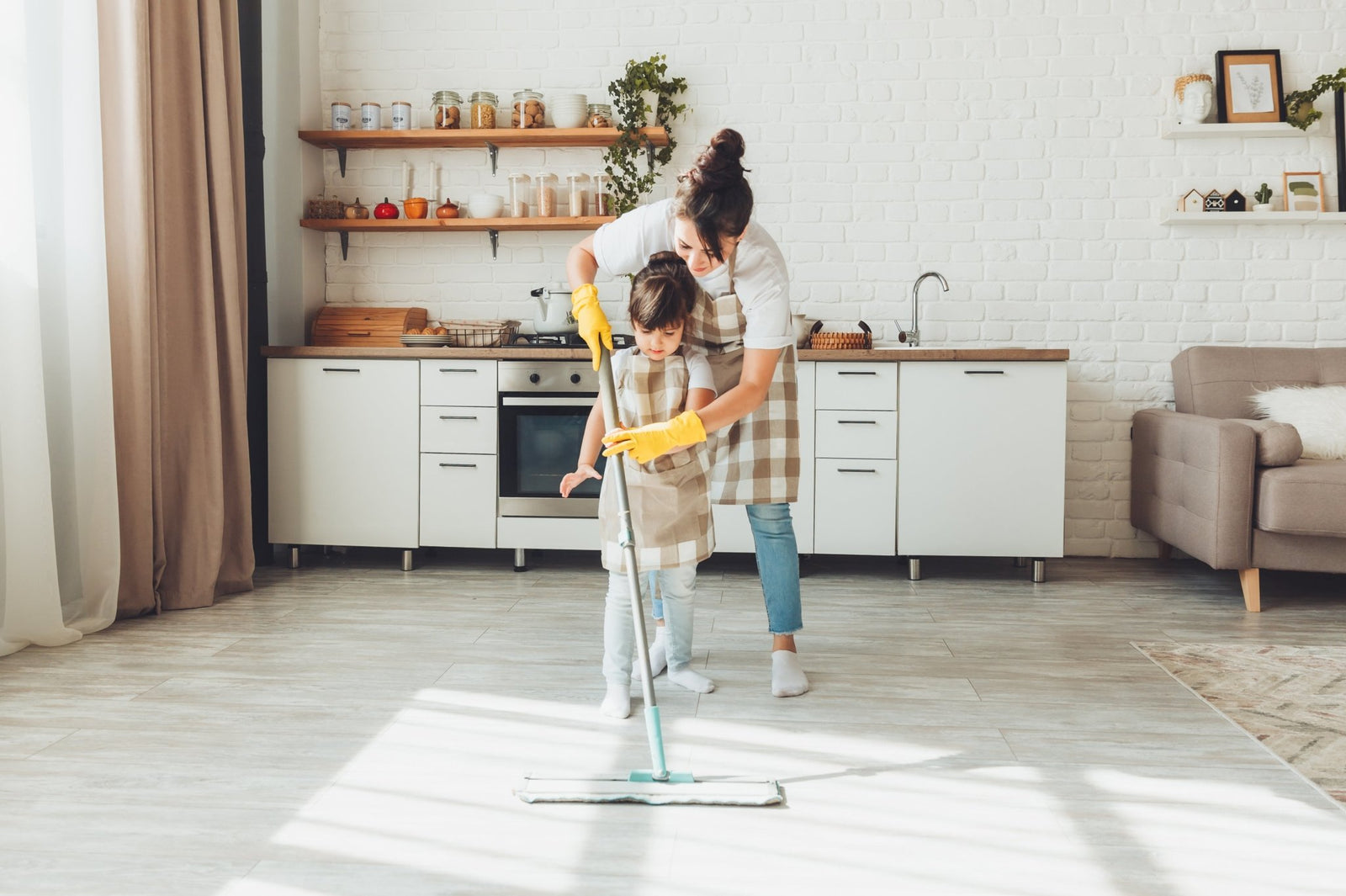20% Off Babylux Nappies, Nappy Pants & Baby Wipes! We close for a short break at 2:30pm 19/12/25 re-open 9:30am 05/01/26.
20% Off Babylux Nappies, Nappy Pants & Baby Wipes! We close for a short break at 2:30pm 19/12/25 re-open 9:30am 05/01/26.
Add description, images, menus and links to your mega menu
A column with no settings can be used as a spacer
Link to your collections, sales and even external links
Add up to five columns
Add description, images, menus and links to your mega menu
A column with no settings can be used as a spacer
Link to your collections, sales and even external links
Add up to five columns
How (and when) to get children to help out around the house?
January 09, 2023 3 min read

How (and when) to get children to help out around the house.
We all like a bit of help with the constant stream of daily housework and let's face it, a lot of that work is tidying up after our children. So when can we get them in on the cleanup? The good news is that it is earlier than you think. I am not suggesting parents use their children as mini maids the minute they can walk (that might be leaning into the area of child labour), but even toddlers can help out. Small things like putting away toys and clothes help children build a sense of responsibility and the earlier they start, the more they accept contributing to their environment. The crucial part of ensuring your children complete chores is that they are age appropriate and present some challenges for them (like folding) without risk of injury (like ironing).
Little Ones (2-3 years old)
Children this age can be quite changeable, so depending on the day they might be excited to help pick up their toys or put their clothes in the draw. Joyously accepting your praise for their incredible packing-up skills. On other days you might find they react to the request to help out with flat-out refusal or clothes-throwing. The important thing is to remain consistent, Children this age will need you to help and guide them through each task. Making cleaning up into a game to see who can pick up the most toys the fastest is another good trick!
Kinder Kids (4-5 years old)
This is a good age to explain the chores other children and parents do as well so they understand it is not a punishment but part of family life. At this age, children can put knives and forks on the table and scrape their plate and put it in the sink. They can start learning to fold towels and help you water the indoor plants with your help (of course this means that your usual tasks will take a lot longer and be a bit messy but a lot more fun).
School Kids (6 years old and above)
Once children have started school they are generally capable of a lot more tasks, but they may need a bit more inspiration. Your praise may be enough to inspire them, if not you can consider a sticker reward system, each task earns a sticker and when you get to a certain amount of stickers you get a reward. Which could be anything from a toy to extra playtime. Some families give children an allowance based on their weekly chores. It all depends on what works for you and your kids.
Tasks like feeding family pets, sweeping and mopping can increase to taking out the rubbish and helping with meals as your children grow. It is a good idea to rotate chores amongst the family, so everyone pitches in equally and no one feels left out. See a full list of age-appropriate chores here.
The first steps to getting a child to help out can be the hardest when it is easier and faster to just do it yourself, but stay strong. With the right encouragement in a few years, you might just be sitting down to a meal your darling child prepared all by themselves and it will all be worth it.
Subscribe
Sign up to get the latest on sales, new releases and more …

Subscribe and Save!
Subscribe to our fortnightly newsletter to receive exclusive offers and discounts.
